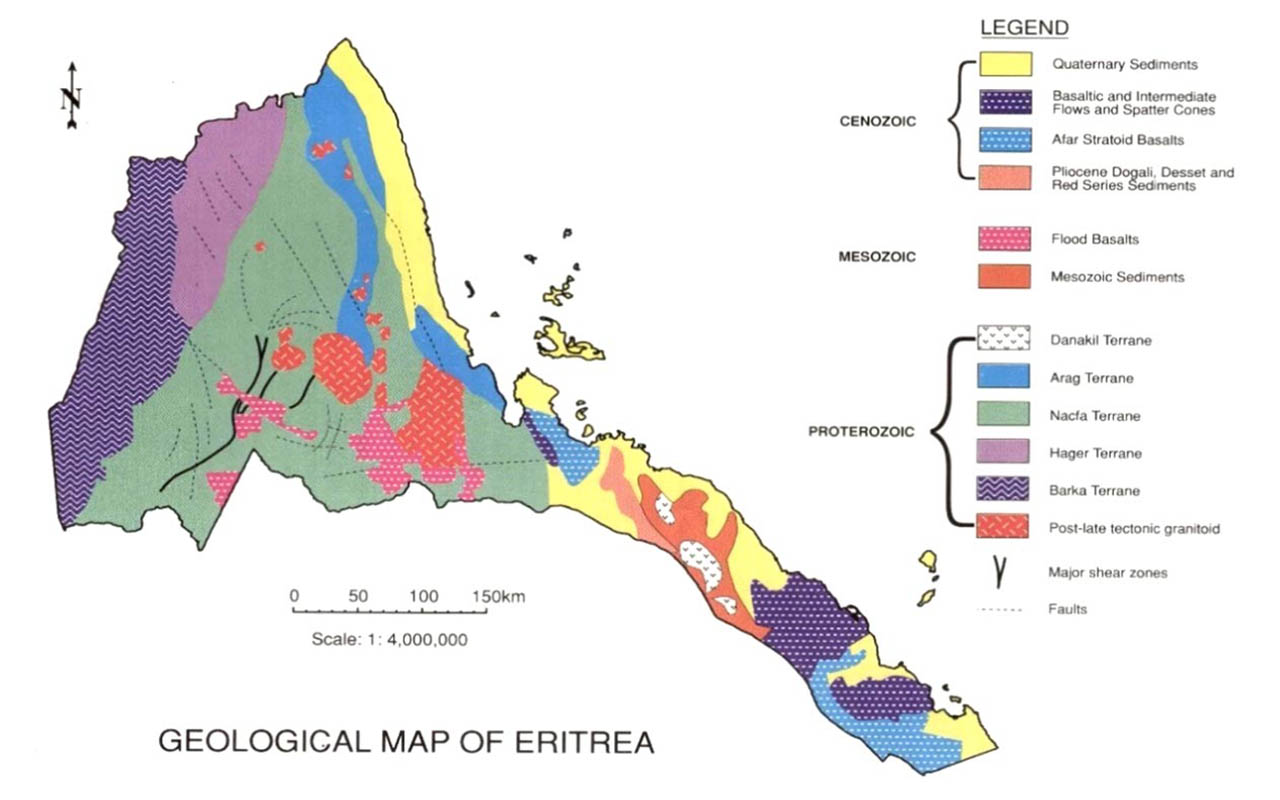Research into the Eritrean Extractive Sector
Background:
Eritrea is rich in mineral resources with the country hosting a variety of precious metals, base metals and industrial minerals, most notably gold, copper, nickel, chromite, potash, sulphur, marble and granite.
In 2009, the Eritrean government granted eight new exploration licences to foreign mining companies and initial results from our research indicate at least 17 mining and exploration firms from various countries – notably Australia, Canada, China, Libya, the United Arab Emirates and the UK – are currently operating in the country.

Scope of research:
The scope of the research study is to ascertain the number and identity of the companies operating in the country and to establish the patterns of behaviour, living conditions, work conditions, pay conditions, health including both physical and mental conditions of those who work in the mining sector in Eritrea. Testimonial documentation of the lives of former miners will be gathered and then analysed to establish whether their human rights were abused. This information will be used in Eritrea Focus’s extractive sector study report and proven human rights abuses will be reported to the Human Rights Council and other relevant bodies, who are currently monitoring the ongoing human rights abuses inside Eritrea.
Extractive Sector in Eritrea
Gold is present in many parts of Eritrea and the government notes that ‘the country has great potential for developing more gold deposits’. A major belt of sulphide deposits with gold and base metal mineralization extends over a length of 250 kms from north of Asmara, the capital, to the Eritrean border to the south. This belt includes the Bisha high-grade zinc-copper-gold deposit managed by the Canadian company, Nevsun Resources. There are indications of similar base metal deposits further north of Kerkebet and Harabsuit and a belt of copper mineralization in Raba-Semait area, sulphide-rich gossanous rock in Mt Tullului (Bedeho) in the north and in Mt Seccar and Sheib areas in the Eastern Lowlands.

Eritrea’s first modern mineral exploration was undertaken in 1955 in Debarwa, a town just south of Asmara, when Eritrea was still part of Ethiopia. Debarwa is a small mining town with resources of high grade gold, copper, silver and zinc. The Japanese company Hitachi operated a mine near the town, but it was shut down in the early 1960s due to the outbreak of the war with Ethiopia.
In 1958, a concession was granted to Ralph M Parsons Company of the US to mine potash near Dallol, 90km south of the Red Sea port of Mersa Fatma. However, this project was similarity aborted due to the outbreak of war.
It is not entirely clear which companies are currently operating in Eritrea since there is little government, company or media information. Our research suggests there are 17 operational projects in the country, with five mines in operation or under development and the remaining projects being focused on exploration. Two of the five mines and seven of the 12 exploration projects are managed by Chinese companies.
Nevsun of Canada is currently the only company in production with another 4 due to start production imminently; Danakali Ltd of Australia (Colluli Potash Project), two Chinese Companies; Sichuan Road & Bridge Company and Shanghai Foreign Economic & Technological Cooperation and one Indian (Essel Group ME Limited).
“Slave labour”:
Given the totalitarian nature of Eritrea’s political and economic system, mining companies operating in the country are complicit in helping to maintain the regime, and thus its repression.
In November 2014, three Eritreans filed a lawsuit against Canadian company Nevsun Resources in Vancouver, British Columbia. They allege the company was complicit in the use of forced labour by Nevsun’s local sub-contractor, Segen Construction (owned by Eritrea’s ruling party), at the Bisha mine.
In 2015, the UN Comssion of Inquiry on Eritrea concluded “Nevsun’s experiences show that by developing projects in Eritrea, mining firms are walking into a potential minefield of human rights problems. Most notably they risk getting entangled in the Eritrean government’s uniquely abusive program of indefinite forced labour—the inaptly-named national service program”
The research study:
The situation in the extractive sector in Eritrea demands international action to halt corporate complicity in ongoing human rights violations. In a country which does not publish a national budget, and where state revenues are unknown, mining companies are contributing to bankrolling this repressive state to enslave its people in perpetuity, pushing many of them to flee the country.
It is with this background that Eritrea Focus with the support of its partner organisations decided to undertake an in-depth study into the extractive sector, which we believe to be the first of its kind. An interim report is due to be published imminently and the report will be made available on this website. The final report which will include detailed testimonials from half a dozen ex-miners together with an in-depth financial analysis is expected to be published later in 2018.

